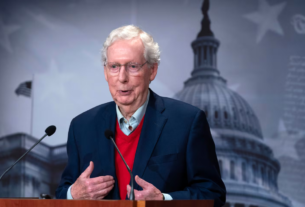Argentine lawyers have filed charges against President Javier Milei, accusing him of fraud for promoting cryptocurrency in the country. The complaint argues that Milei misled citizens about the potential benefits of digital currencies, leading many to make risky investments. The case has stirred national debate about the president’s economic policies and the dangers of cryptocurrency.
“By encouraging people to invest in cryptocurrency without explaining the risks, President Milei has caused harm to many Argentinians,” said one of the lawyers involved in the case. “This charge is about holding the president accountable for his role in these financial losses.” The lawsuit claims that Milei’s promotion of digital currencies, particularly Bitcoin, ignored the volatility of the market and left many citizens vulnerable to financial damage.
Milei has been an outspoken supporter of cryptocurrency, viewing it as a way to combat Argentina’s persistent inflation and economic instability. The president argued that digital currencies could offer a safe alternative to the rapidly devaluing Argentine peso. However, critics argue that Milei’s promotion of cryptocurrency was overly optimistic and failed to address the risks of investing in such a volatile market.
“Cryptocurrency can be a tool for financial freedom, but it comes with significant risks,” said economic analyst Juan Perez. “Milei’s approach did not consider how easily citizens could be misled by the promise of quick profits.” Many Argentinians who turned to cryptocurrency for protection against inflation have faced steep losses as the value of their digital assets fluctuated. Critics claim that Milei should have been more transparent about the potential dangers involved in cryptocurrency investments.
Despite the backlash, some supporters of Milei argue that his stance was a bold attempt to offer a solution to Argentina’s economic crisis. “Milei is trying to break free from the traditional financial system, and cryptocurrency could have been part of that solution,” said political analyst Ricardo Diaz. “The problem is that the market was not stable enough for everyday people to trust it.”
The charges filed by the lawyers have caught the attention of both the public and the media, with many questioning whether the president’s actions were irresponsible. The case has also raised concerns about the role of cryptocurrencies in Argentina’s financial system. Supporters of cryptocurrency argue that digital currencies can provide an alternative to a national currency plagued by inflation, but critics warn that without regulation, they can lead to financial losses.
As the legal case moves forward, questions remain about whether the president will face consequences for his actions. If the case is successful, it could set a precedent for holding public figures accountable for their involvement in financial matters that lead to harm. For now, the controversy continues to grow as Milei’s promotion of cryptocurrency is scrutinized by both legal experts and the general public.




